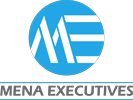Recruitment job interviews are a critical step in the hiring process. They provide an opportunity to assess candidates’ skills, qualifications, and cultural fit while allowing candidates to learn more about the organization. Conducting effective recruitment job interviews ensures that businesses select the right talent to drive success. In regions like Saudi Arabia, Qatar, and Dubai, where competition for skilled professionals is high, mastering the art of interviewing is essential for attracting top talent. Here are key strategies for conducting effective recruitment job interviews.
1. Prepare Thoroughly Before the Interview
Preparation is key to a successful recruitment job interview. Review the candidate’s resume, cover letter, and any additional application materials in advance. Familiarize yourself with the role’s requirements and responsibilities to tailor your questions accordingly.
In competitive markets like Dubai, where time is often a critical factor, thorough preparation ensures a productive and focused interview. Similarly, in Saudi Arabia and Qatar, where attracting top talent aligns with national development goals, preparation helps demonstrate the organization’s professionalism and commitment to quality hiring.
2. Develop Structured Interview Questions
Using a structured approach ensures consistency and fairness in the interview process. Develop a set of questions that align with the job requirements and evaluate both technical skills and behavioral competencies. Behavioral questions, such as “Describe a time when you overcame a challenge,” provide insights into how candidates handle real-world situations.
In Saudi Arabia, Qatar, and Dubai, where organizations often manage multicultural teams, structured questions help assess candidates’ adaptability and teamwork skills, which are essential in diverse environments.
3. Create a Positive Interview Environment
A comfortable and professional interview environment helps candidates feel at ease, allowing them to perform at their best. Begin the interview with a warm introduction and outline the process to set expectations. Encourage open communication and active participation throughout the discussion.
In regions like Dubai, where candidates often come from international backgrounds, creating a welcoming atmosphere demonstrates respect and inclusivity. In Saudi Arabia and Qatar, where cultural sensitivity is vital, a positive environment fosters trust and transparency.
4. Assess Cultural Fit Alongside Skills
While technical skills and experience are important, evaluating cultural fit ensures that candidates align with the organization’s values and work environment. Ask questions about the candidate’s work style, collaboration preferences, and long-term career goals to gauge their compatibility with the team.
In Saudi Arabia and Qatar, where cultural alignment plays a significant role in employee satisfaction, assessing fit ensures smoother onboarding and better retention. In Dubai, where diverse workforces are common, evaluating cultural adaptability is equally crucial.
5. Use a Panel for Comprehensive Evaluation
Including multiple interviewers in the process provides diverse perspectives on the candidate’s suitability. A panel interview allows team members from different departments to assess various aspects of the candidate’s skills, experience, and fit within the organization.
In Saudi Arabia, Qatar, and Dubai, where collaboration across teams is often a business priority, panel interviews ensure that candidates are evaluated holistically and meet the expectations of all stakeholders.
6. Provide Clear and Honest Information
Transparency is a key element of an effective recruitment job interview. Provide candidates with clear and honest information about the role, company culture, and growth opportunities. Address any questions or concerns they may have to help them make an informed decision.
In Qatar, Saudi Arabia, and Dubai, where professionals prioritize career development and stability, clear communication builds trust and reinforces the organization’s reputation as an employer of choice.
7. Follow Up with Constructive Feedback
After the interview process, provide timely feedback to candidates, regardless of the outcome. Constructive feedback helps candidates improve and demonstrates the organization’s commitment to a fair and respectful hiring process.
In regions like Dubai, where competition for talent is intense, providing feedback enhances the candidate experience and strengthens the company’s employer brand. In Saudi Arabia and Qatar, timely follow-ups reflect the organization’s professionalism and dedication to building strong relationships.
Conclusion
Conducting effective recruitment job interviews is essential for selecting the right talent and creating a positive hiring experience. By preparing thoroughly, using structured questions, fostering a welcoming environment, assessing cultural fit, incorporating panel evaluations, providing transparent information, and offering constructive feedback, businesses in Saudi Arabia, Qatar, and Dubai can enhance their interview processes and attract top-tier candidates. As these regions continue to grow and diversify, mastering the art of recruitment job interviews will be a key factor in building high-performing teams and achieving long-term success.




